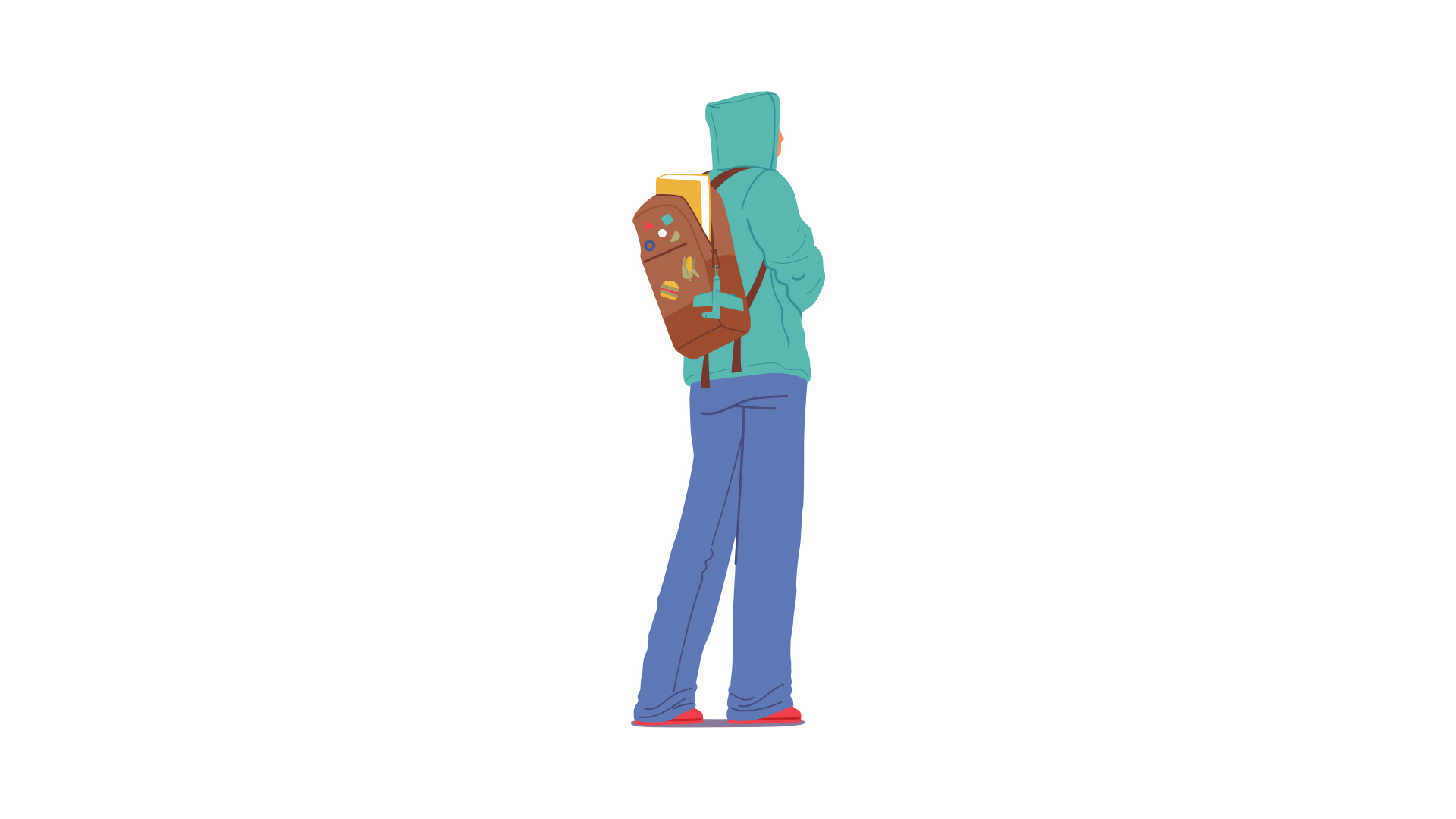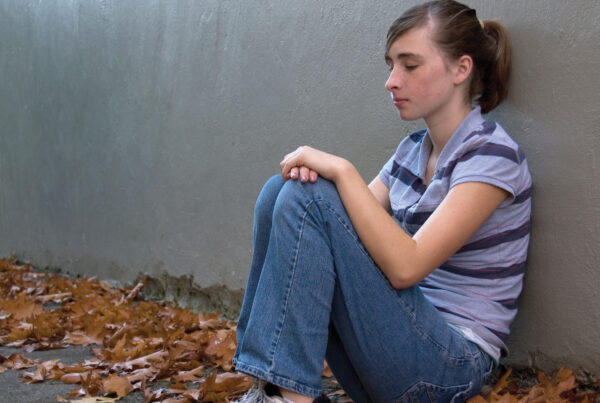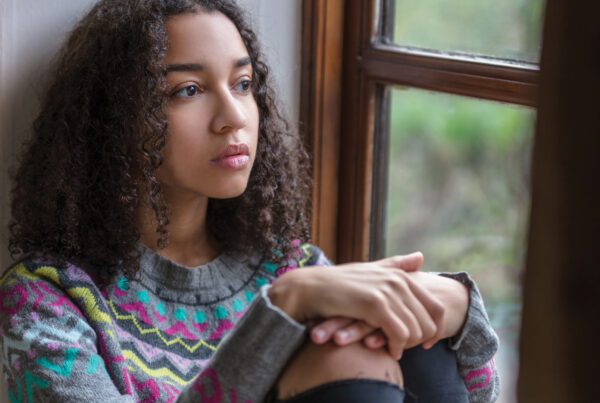As my high school journey crawls to a close, the promise of college looms in a shiny haze on my horizon, glowing with possibilities. Next fall will be my first experience as a true freshman student—in 2020, my 9th-grade year unfolded on my laptop screen and in the confines and comforting safety of my bedroom. The pandemic began in the spring semester of eighth grade and lurched through the end of my sophomore year, robbing me of the type of scholastic jump and evolution that should have happened when I was fourteen. The transition from high school to college will be entirely novel to me. Amidst my giddiness at the idea of arriving on campus, while I compile dorm lists and chat with potential roommates there is a nagging anxiety clinging to me that the pandemic will craftily stretch its claws into my new adventure.
What I am sure of is that the pandemic elongated my adolescence. Being at home for six months without the opportunity to meet friends or do typical teenage activities, like going to the movies or getting coffee, was both a blessing and a curse. As a socially anxious fourteen-year-old, I was secretly grateful for the excuse to stay home, far from my middle school classmates. I was safely ensconced in the walls of my bedroom, away from any potential social humiliation or ridicule, two things that cause every middle schooler to lose sleep. Because the pandemic provided me with a social safety net, I could ignore my social fears.
Still, as time passed and my lack of socializing compounded, my anxieties about the potential return to normal began. My social muscles remained un-exercised, and more time passed without using them, allowing me to forget that many of my fears were largely unfounded and to build up catastrophic stories about the terrors of eating at the lunch table. I let my fears marinate until they became outlandish. This prolonged middle school-era angst cost me valuable time that I could have spent addressing what actually scared me. (As an eighteen-year-old, I’m grateful that I no longer have a debilitating fear of the lunch room; thanks to therapy, I have learned to address things that make me uncomfortable.)
Still, the idea of facing new social experiences in college both excites and scares me, as the knowledge that my transition from middle to high school was an anomaly lurks in my subconscious. My nerves increase when I consider making the even more significant adjustment from high school in my hometown to college three hours away. My peers and I lost out on so many opportunities to interact with each other that we are still catching up.
My academic experience was also altered by my time at home. During my roughly year and a half in virtual classrooms, expectations were incredibly relaxed. There were very few tests, and on the rare occasions they were scheduled, we could refer to our notes. Simply put, classes were easier than they would have been in any average year. It was easy to Zoom into Intro to Geometry while simultaneously watching another episode of Criminal Minds and still earn an A+ on my report card. At the time, my classmates and I reveled in the slackened state of our classrooms, but looking back as a soon-to-be graduate, I now recognize that the pandemic-ridden years of my high school education have not set me up well for a transition to college. The inflated GPAs and extra time on assignments I enjoyed will not be afforded when my fall semester commences. Instead of easy A’s and the blind eyes that turned in pandemic high school, college will present a whole new realm of academia and intensity.
Conventional wisdom says the first semester of college can be a rocky start, but my student cohort might face a landslide.
Thanks, but no thanks, COVID, for prolonging my childhood in the classroom, the cafeteria, and at home. The independence I should have gained in eighth, ninth, and tenth grade disintegrated as I was housebound, albeit with a wonderful family. Spending so much time with my parents and twin sister was a privilege and a gift. We watched many terrible reality television shows, played H-O-R-S-E in the front yard, and ate together (in between the Cloroxing of all groceries).
I didn’t spend the usual time apart from my parents and siblings that many teenagers treasure – there were no sleepovers or dates or trips to the mall, no sense of independence, no chance to figure out who we were away from our families. I relied on my parents and sister for companionship and guidance in a longer and more intense way than I would have normally. I depended on my twin sister for most of my socializing during online school and allowed her to forge friendships for both of us once we returned to class; without my sister by my side, making friends will fall entirely and more dauntingly on my shoulders. Just as scary is the idea of being away from my parents, with whom I spent every waking hour while we were at home. Now, the idea of being apart from them makes my stomach churn.
I fear that the autonomy and opportunities I missed out on during the pandemic will come back to haunt me when I am faced with being truly independent, far away from home. The impending separation that will begin when my college dorm room door closes with me on the inside will be much harder than it would have been without COVID.
And yet, I can’t wait to start college this fall. The excitement of new classes, friends, and adventures on campus trumps the fear of being unprepared to start this new chapter. I am determined to forge ahead and jump into the new challenges that college will bring. I will use my pandemic wounds to my advantage. The social anxiety that I experienced? Now, an asset; It taught me to be more attentive to others rather than scared of their judgment. The relaxed grades and online classes? I know the value of seeing my professors face to face and will use it to motivate me to get up before my alarm. The independence I lost? Instead, I’ll look at it as the stronger connections I formed with my extended family, who are now much better versed in the art of the group Facetime, which will undoubtedly come in handy.
I feel lucky to have this perspective on the pandemic and know that not everyone has the good fortune to look at these experiences in a positive light. Going forward, I will share my hopefulness (and Hi-Chews, my candy of choice to give to new friends) with anyone I meet on the quad next year.






